Making a Difference
Interview by Richard Marshall
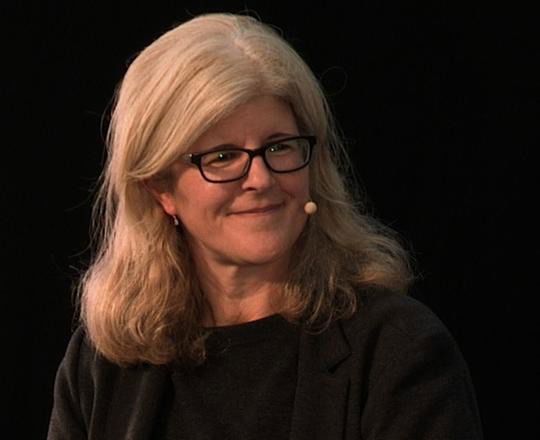
Helen Beebee is currently President of the British Society for the Philosophy of Science and President Elect of the Aristotelian Society, and co-chair (with Jenny Saul) of the BPA/Society for Women in Philosophy (UK) Committee for Women in Philosophy. She was Director of the British Philosophical Assocation from 2007 to 2011 and a member of the AHRC's Advisory Board from 2009 to 2013. From September 2016 to August 2019, she is the Principal investigator on the AHRC-funded project, 'The age of metaphysical revolution: David Lewis and his place in the history of analytic philosophy',
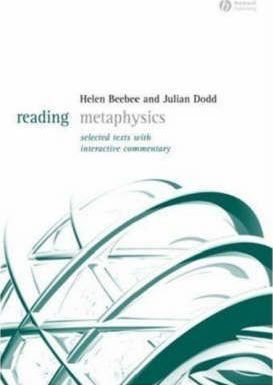
3:AM: What made you become a philosopher? Were you always worrying about metaphysics or was this something that you kind of grew into doing?
Helen Beebee: I’d love to be able to say that I first stumbled across the Problem of Universals at the age of six and things snowballed from there, but the truth is that I applied to university to study management science, and then my boyfriend told me that my brain would rot and I should do something more intellectually challenging, so I switched to philosophy and politics. And then I dropped the politics. I was a pretty average student for my first two years but then I started putting the work in and – surprise! – my grades improved and also I discovered that philosophy was really interesting. Plus I realised I just really liked being in a university. So I figured I’d carry on until nobody would pay me to do it any more, and I’m still waiting for that to happen. I’m not sure what attracted me to metaphysics in particular; I started out as a graduate student being interested in scepticism, and somehow that morphed into an interest in causation – I’m not sure how.
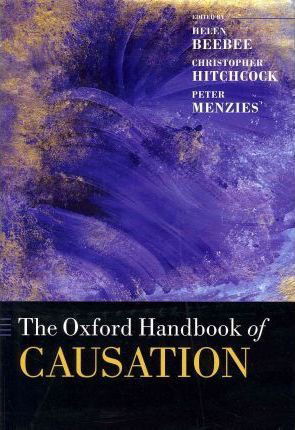
3:AM: You are a top ranking metaphysician. You’re well known for your work on causality (including sorting out contemporary disputes about how best to think about Hume), laws of nature, free will and basically all things metaphysical. So perhaps we should take some of these topics and get your positions on them clear. So let’s start with Hume, who has been a contested figure recently, particularly around how he understands causality. I always thought Hume was the guy who said that causality was just something our minds impose on perceived regularity but there was no law-like necessity involved. Like the turkey and Christmas, inductive thinking couldn’t guarantee what happened next. But this is now being revised isn’t it? Can you say something first about what the revisionist scholarship of, for example, Edward Craig, is saying and what difference it makes to our views about Hume? You part company with many of the revisionist readings but not all don’t you?
HB: Well actually I think what you always thought is basically right – but I’ll come back to that. A really central concern of Hume’s is how we get to find things out about the world that aren’t immediately present to us in experience or memory. How did I get to form the belief that it’s going to rain any minute, or that that cake is going to taste delicious, or that climbing into the lions’ enclosure at the zoo is a really bad idea? Hume’s answer is: by inferring effects from causes (or vice versa). One thing everyone agrees on is that Hume thought this inference doesn’t happen just by paying really close attention to the cause. No matter how hard you look at the cause, you’re not going to be able to infer anything at all – not just from that on its own – about what’s going to happen next. Not even when you’re looking at that big, scary lion and the idiot who just climbed into its enclosure for a dare – you’re bringing a whole load of background knowledge to bear when you infer that said idiot is going to come to a sticky end: knowledge about how big animals with sharp teeth behave, what happens when said sharp teeth come into contact with human flesh, human beings’ rather limited resources for fending off lions, and so on. (Exactly what role this background knowledge plays is something I’ll get to later.)
A lot of commentators think (or used to think – this interpretation has rather fallen out of favour) that Hume infers from this inability to infer effects from causes just by paying attention to the cause itself that there is no feature of the cause that could in principle (if only we had the right powers of perception!) license inference from cause to effect – and, moreover, that all we really mean when we say ‘x caused y’ is that y followed x, and that events relevantly similar to y generally follow events similar to x. (That view is sometimes known as the ‘naïve regularity theory’ of causation.)
But some people in the ‘sceptical realist’ tradition think that actually Hume holds that there is such a feature – and that this is what we’re referring to when we say that x causes y. It’s just that we can only form a kind of hazy idea of that feature because we can’t directly experience it. (Hume was a hard-core empiricist, and thought that all of our ‘ideas’, or concepts if you like, come from experience. But, as I said, he thinks we have no experience of anything in the causethat connects it with its effect. So this interpretation has to do some fancy footwork to explain why it’s consistent with Hume’s avowed empiricism.)
One reason I don’t like this interpretation is that saddles Hume with a kind of rationalist metaphysics. One broadly rationalist (or maybe ‘scholastic’ is better) view is that we really can, as it were, penetrate into the essence of matter, in such a way that we can (if we’re careful and attentive enough) figure out, just from paying close enough attention to the cause, what’s going to happen next. And of course that epistemological view – that view about what we can know or find out – requires a metaphysical view according to which there really is some ‘essence’ of the cause that underpins the inference. On the interpretation just described, Hume dumps the rationalist epistemology but keeps the metaphysics – but why on earth would he do that? After all, the only motivation for endorsing the rationalist metaphysics is that it underwrites the rationalist epistemology!
Another strand of the sceptical realist tradition, and I think this is more like Craig’s version of it, says that Hume thinks there is more to causation than just regularity but that ‘extra’ element isn’t something that could in principle underpin our inference from x to y; rather, it’s some kind of glue that binds x-type events to y-type events, and which therefore explains why the regularity exists. Some fancy footwork is required here too, since Hume doesn’t think we experience any connection betweencauses and effects either – so, on the face of it at least, there’s a tension between this interpretation and Hume’s empiricism as well. I don’t like thatinterpretation either!
The interpretation I prefer – call it the ‘projectivist’ interpretation – is just as you said: causation is just something our minds impose on events out there in the world. We do, in fact, infer effects from causes. (I’ll come back to how he thinks we do that in a minute, but roughly we have to have the right kind of past experience – remember the lion.) And when we say or think that x caused y, what we’re doing is, in a sense, projecting that inference onto the world. The world looks like a world in which causes and effects (x and y, say) are joined together in such a way that licenses inference from x to y. But it only looks that way because we do, in fact, infer y from x; and our inference produces a kind of ‘impression’ that we project onto the x/y pair of events.
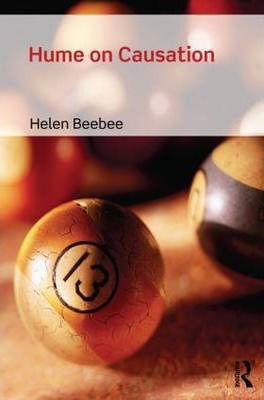
3:AM: You say that Hume is a systems destroyer rather than a systems creator whenit comes to epistemology and semantics don’t you? So you say he isn’t an inductive skeptic after all and that he isn’t interested in the content of causal claims. Can you say something about your position on Hume and what diference this makes to how we should read him? I think that Pat Churchland agrees with this reading which suggests that Hume is perhaps not to be thought of as a metaphysician really, but a straightforward naturalist philosopher clearing away obstacles to scientific thinking. Is this right or am I way out on this?
HB: Well, actually I do think Hume is a system-creator. But I think he’s much more interested in psychology than he is in any of metaphysics, epistemology or semantics – though his psychological views have implications for all those areas. (So, for example, his psychological view on the inference from causes to effects has implications for what we mean when we say ‘x caused y’, because it has implications for where the ‘impression’ that underpins our idea of causation comes from.) So I don’t think he’s just clearing away obstacles to scientific thinking – he’s doing scientific thinking. Though it’s admittedly not very scientific by contemporary lights, since he had a sample size of one – basically he just introspected and assumed that everyone else is the same.
So think about induction. According to philosophical orthodoxy, Hume discovered the ‘problem of induction’, which goes roughly like this. What kind of justification could we give for our inductive inferences – our inferences from how things have gone in the past to how things will go in the future? (In the past, eating toast has never poisoned me. That’s why I am now eating my toast with such confidence that it won’t poison me either.)
Well, that justification must either be a priori – it comes from just logic alone – or a posteriori, that is, somehow based on experience. But it’s not a priori:manifestly the non-poisonous nature of this toast I’m now eating doesn’t follow logicallyfrom the fact that no previous toast has poisoned me. After all, it’s entirely conceivablethat this particular piece of toast is poisoned – or, for that matter, that the sun won’t rise tomorrow, or that things will stop falling towards the ground when I drop them, or whatever – all things that we do in fact believe on the basis of past experience. And it can’t be a posteriori either. The only a posteriori reason I could have for thinking that the future will resemble the past (that this next piece of toast won’t poison me, or whatever) is that in the past, the future has resembled the past: on previous occasions where I’ve been entirely confident that my next piece of toast wouldn’t poison me, I’d been proved right – I’m still here. But for that justification to work, I’d have to infer the future resemblance of the future and the past from the past resemblance of the (then) future and the (then) past. But that’s just another case of inductive inference – the very inference we were trying to justify. So the attempt to justify inductive inference a posteriori is circular.
Now, something that looks a lot like the above argument does appear in Hume. But I don’t think he was really interested – at least not in the first instance – in justification at all. I think he was interested in psychology: in the psychological mechanism that has beliefs about the past (my previous experiences of toast-eating, for example) as input, and delivers beliefs about the future (this next piece is going to be fine) as output. One possible mechanism, in principle, would be deductive (logical) inference – but deducing Y from X works by being unable to conceive X without Y, so manifestly inductive inference can’t work like that (I can conceive this piece of toast poisoning me, or my pen floating upwards when I let go of it). Another possible mechanism would be by running through an argument like the a posteriori argument just described: ‘this kind of inference hasn’t let me down in the past, so it won’t let me down this time either’. But that can’t be the mechanism either, because we’re trying to explain how the mechanism works, and obviously that explanation can’t appeal to the existence of the very mechanism we’re trying to explain! So there’s a problem concerning induction here, but it’s not the problem of justifying inductive inference; it’s the problem of explaining what the mechanism is.
So what’s the solution? Hume’s answer is: ‘custom or habit’. The mechanism is just a brute mechanism that works as follows: once you’ve got enough experience of events just like y (e.g. feeling satisfyingly full rather than dropping dead) following events just like x (eating toast), you start just brutely coming to expect y-type events when we experience x-type events. That’s it. Essentially it’s no different to what happens when your dog infers that a walk is imminent from the fact that you’ve just put your coat on, picked up its lead and said ‘Walkies!’. Your dog has come to expect a walk to follow because that’s what’s always happened in the past.
Note that that’s a terrible solution to the traditional problem of induction, since manifestly our inferences from the past to the future are in no way justifiedby their being a brute matter of custom or habit! But it’s a perfectly good solution to the psychological problem: Hume was looking for a mechanism, and now he’s found it. Job done!
While we’re here, it’s worth relating all of this to the earlier question about causation. Hume thinks that causation and regularity are very closely connected, and his account of inductive inference explains why that’s so. Remember, it’s our inference from causes to effects that generates the idea – the ‘idea of necessary connexion’, as Hume calls it – that we project onto the world when we think or say that x caused y. But as we’ve just seen, that inference is a matter of ‘custom or habit’ – that is, it only operates once we’ve got sufficient past experience of x-type events being followed by y-type events. So you need regularity in order to generate the psychological mechanism or ‘habit’ of inference that in turn generates the idea of necessary connection: without any regularities, we’d never make the inferences and hence would lack the concept of causation. (Well actually we would never have evolved in the first place, since our survival depends on our ability to be pretty good at making predictions.)
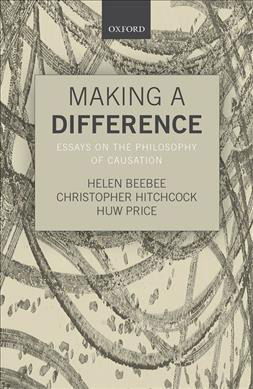
3:AM: Causation is a metaphysically fascinating topic though isn’t it, and you’re one of the top people around thinking about what the hell it is. Before going into details, given that its been a metaphysical question from the very start of philosophy more or less, and given that all the greats have had a go at working out what it is, what makes you think you’re going to crack it when these others couldn’t? Wouldn’t it be rational to think that you’re not, and if you know you’re not, then isn’t it rational to drop it? (And not just you, of course, but everyone!)
HB: That’s a great question! I’m going to take it as a question about the nature and existence of progress in philosophy, which I’ve been thinking about quite a lot lately – and it’s a tough one. But to give a partial and I think pretty uncontroversial answer, one way in which philosophy definitely does progress is that the questions get more sophisticated, and the range of possible answers gets wider and (in some sense that I’m not going to try and define!) more interesting. So for example Hume had a pretty crude view about how it is that we get to form concepts or ‘ideas’ and how they relate to our sensory experience; getting more sophisticated on that front gives us a more sophisticated take on how it might be that our concept of causation latches on to reality. Of course, an obvious problem is that asking more sophisticated questions and broadening the scope of potential answers doesn’t seem to get us much closer to actually finding the right answer to the right question!
3:AM: One thing about metaphysics that strikes me is that you can’t do it in pieces. So each metaphysical move brings with it commitments that affect the rest of the system. You have a way of explaining causality that involves time, well there you have a commitment to time which itself needs explaining. And so on. So causality is going to have to be placed in a whole metaphysical system – and people are going to disagree all over the place aren’t they? Is this one of the big issues for metaphysicians? And is that why some of the theories of the past, such as those put forward by the Ancient Greeks, the Medievals, the Early Moderns, Hume, Kant, the Logical Empiricists are all coming up with ideas that couldn’t converge?
HB: That is indeed a very big issue for metaphysicians – and for philosophers more generally, I think. And I’ve been thinking about that too. I want to take a leaf out of the philosopher David Lewis’s book here; Lewis says that our aim as philosophers is to find out ‘what equilibria there are that can withstand examination’, where an ‘equilibrium’ is basically a reasonably complete body of philosophical ‘opinion’. As you suggest, your metaphysical views in one area are going to have knock-on effects in other areas – so you need to make sure your overall position is internally consistent. But we don’t really have any good reason to think that given enough time and resources and brain power, we’ll end up with exactly one equilibrium that can withstand examination; we might well end up with a whole bunch of them, with no way of rationally deciding between them.
One reason why this is likely, I think, is that we disagree with each other not just on (for example) metaphysical questions, but also on what makes one philosophical theory better than another. Some people think failing to accord with common sense makes for a bad theory, and hence we should reject e.g. theories according to which there are no such things as chairs and tables, or according to which nobody is ever morally responsible for anything. Others don’t care much about common sense. Some people think a theory that is ‘ontologically parsimonious’ – or, in English, posits fewer kinds of thing – has an advantage over one that is less parsimonious, so for example a physicalist theory of the mind is better than one that takes minds to be immaterial substances, or a theory that only posits (say) sub-atomic particles and not, in addition, chairs and tables and other ‘composite’ objects is better than one that does posit composite objects. Other people don’t care so much about ontological parsimony. So different methodological preferences are going to generate different ‘equilibria’, and there is no neutral way to decide between them.
I’m inclined to take the moral of all this to be that we shouldn’t be aiming at knowledge in metaphysics, or indeed in other areas of philosophy: the One True Theory is just not a sensible thing to aim at, since there is just no way to resolve a lot of disputes about which theory is the One True Theory. Rather, as Lewis says, our aim is merely to find out ‘what equilibria there are that can withstand examination’.
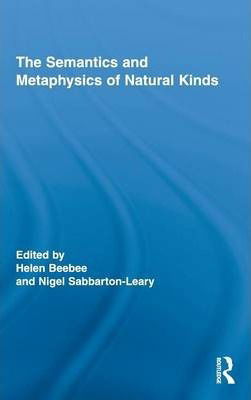
3:AM: You asked a really cool question which is why we all love metaphysicians: does anything hold the universe together? So, does anything? Does this raise issues of necessity, powers and essentialism?
HB: Having said earlier that Hume wasn’t that interested in metaphysics, there is still a broad philosophical view that goes under the title ‘Humeanism’ that has something in common with (what I think is) Hume’s view. Humeanism eschews necessary connections and ‘metaphysical glue’ when it comes to causation – but also when it comes to the laws of nature (at least by implication – he doesn’t explicitly talk about laws).
Suppose that there’s some species of insect – let’s call it a snarg – that will never be discovered, and let’s also suppose that no human being as ever been or will ever be within six feet of a snarg. But that’s just an accident: there’s no underlying reason why it’s true. (Suppose at some point someone got within seven feet of a snarg. They could have taken an extra step in the snarg’s direction, but, as it happens, they didn’t.) So the fact that nobody ever gets within six feet of a snarg is just an accidental regularity. The laws of nature, by contrast, aren’t just accidental regularities: it’s not just a happy coincidence that everything behaves in accordance with e=mc2. So what’s the difference between laws and accidental regularities?
Well, one way to put the difference between laws and accidental regularities is to say that they differ with respect to their ‘modal status’. Modal status has to do with what’s necessary or possible – what could and could not be the case. For example, it’s a contingent truth that I just ate a burrito – I could easily have had tacos instead, or pizza, or nothing at all. Come to think of it, the world could have panned out in such a way that my parents never met, in which case I wouldn’t have existed at all. By contrast, it’s (arguably) a necessary truth that 2+2 = 4. There’s no way things might have panned out such that it would have been false that 2+2 = 4.
Accidental regularities, just like the fact that I just had a burrito, are contingent: things could have panned out in such a way that a given accidental regularity didn’t obtain. (Think about the person who could have taken that extra step towards that snarg.) Laws of nature don’t seem to be contingent – or at least, not as contingent as accidental regularities. We might put this by saying that it isn’t physically impossible for someone to get within six feet of a snarg, but it is physically impossible for someone to break a law of nature. Feel free to go ahead and try if you don’t believe me! (That said, laws don’t seem to be as modally ‘robust’ as the fact that 2+2 = 4; consider that fact that you can’t really even imagine it not being the case that 2+2 = 4, but you can – arguably –imagine it not being the case that e=mc2. We might put this by saying that, while laws are physically necessary, truths like 2+2 = 4 are metaphysically necessary.)
That’s just another way of stating the distinction between laws and accidental regularities, though – it doesn’t explainthe distinction. How is it that laws get to be more modally robust than accidental regularities? What explains why the laws are physically necessary but the accidental regularities are merely contingent? That’s where the Humeanism-vs-non-Humeanism distinction comes into the picture.
Basically, non-Humeans think there’s something more to a law of nature than mere regularity: there’s some feature of the world that somehow stands behind or explains the relevant regularity, and which gives it its enhanced modal status. One very straightforward (at least on the face of it) way to cash this out is to follow the philosopher David Armstrong. What’s the difference between its being merely accidentally true that all Fs are Gs and its being a lawthat all Fs are Gs? Armstrong’s answer: in the accidental case, nothing binds F-ness (being a human, say) and G-ness (being more than 6 feet away from a snarg) together. In the law case, by contrast, F-ness and G-ness are related by a necessary connection. (Given what I said earlier about Hume, you can see why this view is thought of as a ‘non-Humean’ view.) The fact that this necessary connection obtains between F-ness and G-ness guaranteesthat whenever something is F, it will also be G. So it both explains why all Fs are Gs (where no such explanation is available in the case of accidental regularities) and gives the law that all Fs are Gs its enhanced modal status: the fact that all Fs are Gs is guaranteed.
Humeans, by contrast, think that when it comes to what’s out there in the world, there’s really no difference between laws and accidental regularities. But they still have to distinguish between the two, and they also have to explain the difference in modal status. How do they do that? Well, the most well-known Humean view is David Lewis’s (Lewis again! I’m a big Lewis fan). The basic idea goes like this: imagine God writing down in precise detail the exact state of the Universe at every moment in time, from the Big Bang until the end of time, as a massive list in his Big Book of Facts. He’d need a really, really big book. It would be a pretty rubbish book to read if you were a mere human being trying to find out what goes on in the Universe. So God tries to make it easier for us: he notices that there are a lot of regularities in there, and so he takes the most pervasive ones – the ones that have a lotof instances – and states those regularities at the beginning of the book under the heading ‘Axioms’. Now he can go through and cross out loads of the items on his list – and so the book gets a lot shorter and easier for us to digest. (Toy example: imagine a tiny universe that exists only for an instant. It contains exactly sixty objects, and each object has exactly two properties, F and G. So God’s initial list would go: a is F, a is G, b is F, b is G, ... and so on; the list would have exactly 120 items on it. But he can halve the length of the list by adding the axiom ‘All Fs are Gs’ – since we can infer that a is G from the fact that ‘a is F’ appears on the list, and so on.) If God’s really lucky, he can even get away with just writing a list of the initial conditions of the Universe, together with a list of axioms, and cross out all the other items on his original list. In that case, determinism is true: everything that happens can in principle be inferred from the initial conditions plus the laws.
And now the idea is that the laws of nature are just the axioms at the beginning of God’s book – and the really, really pervasive regularities are going to be the axioms, while the relatively non-pervasive ones aren’t. So for example ‘e=mc2’ will make it onto the list of axioms but ‘all human beings are always at least six feet from a snarg’ won’t – but not because of any deep metaphysical difference between a regularity that’s underpinned by some kind of ‘metaphysical glue’ or necessary connection and one that isn’t. It’s just a difference between a really interesting and pervasive regularity and a relatively boring, localised one.
We might contrast our little story about God’s Big Book of Facts with what God would have to do to set up the laws on a non-Humean view. One way to think of this (though one that probably lots of non-Humeans will object to) is to think of God, rather than sitting down once he’s watched everything happen across all time and then coming up with his list of axioms, instead sitting down right at the beginning and writing down the same list – not as axioms but as rules that everything shall henceforth obey. (How do they get to be rules – how does everything ‘know’ what it should be doing? Well, maybe he implements the rules by gluing some ‘universals’ – F and G, for example – together with necessary connections, so that it’s guaranteed that every time there’s an F, it’ll be a G.)
What about the modal status of the laws for the Humean? Well, Lewis himself simply stipulates that what ‘physically possible’ meansis: consistent with the laws of nature. So it turns out to be true by definition that the laws are physically necessary, and (near enough) true by definition that the accidental regularities aren’t.
That might look like a cheat. But is it? It gets us the right result, after all. Granted, it doesn’t give us any kind of deep metaphysical explanation of the difference in modal status between laws and accidental regularities. But we Humeans don’t much care for deep metaphysical explanations – in particular, the kind of deep metaphysical explanation that’s going to involve positing necessary connections. That’s the USP of Humeanism, after all. The shunning of necessary connections comes at a cost, to be sure – but we think it’s a price worth paying. Other philosophers are totally OK with positing necessary connections, and think the price of giving them up isn’t worth paying. Well, each to their own. To refer back to an earlier answer, maybe Humeans and non-Humeans have each found ‘equilibria … that can withstand examination’. (Or maybe not; after all, the examination is ongoing.
Anyway, let’s get back to the question. Me, I’m a Humean. So no: nothing holds the Universe together. No necessary connections, and no metaphysical glue. Metaphysically speaking, there’s just God’s Big Book of Facts. (Well, minus God.)
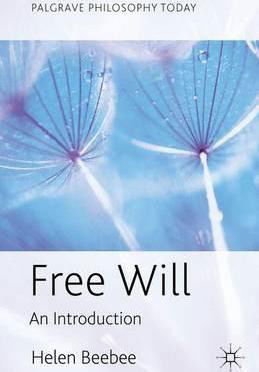
3:AM: Free will is a perennial concern for metaphysicians. You’ve joint authored a paper with Al Mele that connects with your view about the laws of nature. So what’s your position on this?
HB: Yes, something like God’s Big Book of Facts appears in that paper! Our basic idea is that the Humean view of laws connects with a ‘compatibilist’ view about free will – compatibilism being the view that free will is compatible with determinism. A central argument for rejecting compatibilism is that if the laws of nature plus facts about the distant past determine that I’ll do X (raise my hand, or order a coffee, or save someone from drowning, or whatever) – as determinism says – then I don’t do X freely. After all, what the facts about the distant past are is not, now, up to me – I can’t do anything about them – and the laws of nature aren’t up to me either; I can’t do anything about them either. So, since I can’t do anything about the things that jointly determine X, I can’t do anything about whether or not I do X. Hence, when I do X, I don’t do it freely.
Our thought is that if, as the Humean says, the laws are really just regularities, then they don’t really constrain my behaviour in the way the above argument presupposes – not on a deep metaphysical level, anyway. From the Humean point of view, when we assume that the laws (L) plus the distant past (P) determinethat I’ll do X, we’re in effect assuming a lot of facts about the future – we’re assuming that ‘L’ (a complete statement of all the laws) is true, and hence that whatever regularities are stated by L really are regularities, not just so far but for all time. (Remember God’s Big Book of Facts: the laws axiomatise all the facts, including the ones that, from our point of view, are still in the future.) But facts about the future don’t constrain what I can and can’t do now. Imagine I’m that person who’s seven feet from a snarg. Assume some facts about my and the snarg’s respective locations, plus the truth of ‘nobody ever gets within six feet of a snarg’, and it follows (and hence ‘determines’) that I won’t take that step towards the snarg. But that doesn’t stop me from being ableto take that step. Similarly, if we assume L and P, it follows that I’ll do X. But that doesn’t stop me being able to not do X. (The eagle-eyed reader will spot that this claim is somewhat in tension with something I said earlier when I was talking about the distinction between laws and accidental regularities. Some fancy footwork is needed to get around that problem, but I’ll skip that!)
One fairly obvious problem with this view is this. Grant that the truth of determinism is indeed compatible with being able to not raise my hand or order that coffee. That sounds OK – indeed, it’s just the result the compatibilist wants. But it definitely doesn’t sound OK to say that I am also able to leap over the Eiffel Tower in a single bound or travel to that meeting I’m late for faster than the speed of light. So how can we rule in the first kind of case but rule out the second kind? We get around that problem (to our own satisfaction, but I’m not sure to others’!) by pointing out that on a plausible way of understanding ‘counterfactuals’ (sentences of the form ‘if A had happened, then B would have happened’), it’s true that if you tried not to order that coffee, you’d succeed, but it’s not true that if you tried to clear the Eiffel Tower in a single bound, you’d succeed. So I am not ‘able’ to travel faster than light where what I mean by that is that I am both able to try to do it (which I am) and such that if I tried, I’d succeed (which I wouldn’t).
I’m not entirely sure anyone else actually buys the conclusion of the paper – that the laws are, in some sense, up to us – apart from me. (Not even Al because he’s not a committed Humean.) I think most people who have read it or heard it think it’s nuts. Still, that’s the way things go in philosophy sometimes!

3:AM: Your impressive “reading metaphysics’ book is a book with a pedagogical purpose. You identify barriers to students coming to a text for the first time and you have attempted in this book to address this issue. I like your point, for example, that Descartes doesn’t reveal in his texts who he’s arguing with, and knowing this would help contemporary readers. So what do you think we need to have access to to help us get the arguments we’re often trying to work out in a vacuum?
HB: Glad you liked it! I wrote/edited it with a friend, Julian Dodd, and it’s got a bunch of philosophy articles in it along with a kind of reader’s guide for each one, with questions interspersed to encourage students to try and figure some of it out for themselves. Reading, analysing and criticising a piece of professional philosophy is a major part of the skill set we expect undergraduates to acquire quite quickly, but a lot of students find it a really hard skill to master – and just exhorting them to try harder or do more work isn’t necessarily going to help much. It’s especially hard when it comes to the history of philosophy, where the language can be a bit obscure and the students often won’t know the historical context.
One thing that really helps with the former is Jonathan Bennett’s ‘Early modern texts’ website , which basically rewrites a whole bunch of (roughly) 16th-18thCentury philosophical texts in plain contemporary English. The internet is also a massive help when it comes to getting some help with difficult texts; pick any contemporary ‘classic’ paper and you can easily find loads of people’s Powerpoints and lecture notes that walk you through it.
3:AM: The place of women in academic philosophy is a big issue. Currently women are under-represented. As a fairly senior philosopher, you’ve got some power to try and change things. So why do you think this is a problem particular to philosophy and are there things that can be done to address this issue?
HB: It’s definitely not a problem particular to philosophy, but when it comes to the under-representation of women philosophy is up there with maths, physics and computer science and much worse than most other arts and humanities subjects. So there’s definitely something going on there – or rather, quite a lot of things. I think one thing that’s going on is stereotypes and biases – sometimes unconscious, sometimes not. Subjects that are abstract and technical, as those sciences are and as philosophy sometimes is, just aren’t seen as the kind of thing that girls or women are supposed to be good at. That starts really early on, when boys are encouraged to figure out how to make a Lego Deathstar while girls are encouraged to play with dolls or whatever, and carries on through school. (I’ve had friends tell me about some pretty full-on stereotyped things that their daughters’ teachers have said and done when it comes to maths.) And then it’s made even worse by the fact that basically all our go-to historical exemplars of mathematicians, philosophers, physicists and computer scientists are men – Plato, Aristotle, Hume, Kant, Newton, Einstein, Turing, … . That’s slowly starting to change, as people increasingly come to appreciate that there have historically been lots of outstanding women too, who were often marginalised at the time and/or subsequently written out of history. There have been big moves to raise the profile of early modern female philosophers, for example, and to incorporate their work in undergraduate teaching. Similar efforts are being made to make curricula less white and Western as well – in the UK we’re increasingly seeing things like Islamic philosophy and Buddhism appearing in undergraduate courses. I hope those kinds of move will start to make a difference, but it’s early days.
One thing that I think is really unhelpful is using words like ‘brilliant’ and ‘talented’ and ‘genius’. One of my favourite papers that relates to this is by Sarah-Jane Lesile, Andrei Cimpian and colleagues (Leslie, Cimpian, Meyer & Freedland, ‘Expectations of brilliance underlie gender distributions across academic disiplines’, Science 347, 2015 – you can see Sarah-Jane talking about it here. It shows that there’s a strong correlation between how under-represented women are amongst graduate students in different subjects and how strongly people working in those subjects think that success in that subject requires raw, innate brilliance. Amongst social sciences and humanities, philosophy showed the second-lowest representation of women (worst was music composition) and far and away the strongest belief that success requires innate brilliance. There’s a similar pattern in the sciences, where maths and physics have the strongest belief that success requires innate brilliance and amongst the lowest representation of women. (I’ve also read a study of engineering students which suggested that male students tend to understate how hard they work. And that just makes things worse because it makes it seem as though the male students have more natural talent than the female students, since they apparently get the same grades with less work.) That research suggests that maybe one way to try and improve the situation is to stress to students that hard work and effort are what are valued and required for success, rather than some kind of ‘natural’ talent.
3:AM: And finally, for the metaphysically curious here at 3am, are there any books (apart from your own which we’ll be dashing away to read straight after reading this) that you could recommend to us?
HB: Glad to. I’m going for three recent books:
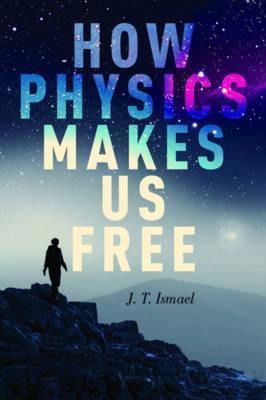
Jenann Ismael’s How Physics Makes Us Free(2016),

Heather Widdows’ Perfect Me: Beauty as an Ethical Ideal (2018)

and Elizabeth Barnes’ The Minority Body (2016), all of which are fantastic! The last two in particular are great examples of applying philosophical thinking to real-world issues that really matter. They challenge assumptions – about beauty practices and disability respectively – that we tend to uncritically endorse in our everyday lives, and they really make you think about the issues in a more systematic, philosophical and enlightened way.
ABOUT THE INTERVIEWER
Richard Marshall is still biding his time.
Buy his new book here or his first book here to keep him biding!